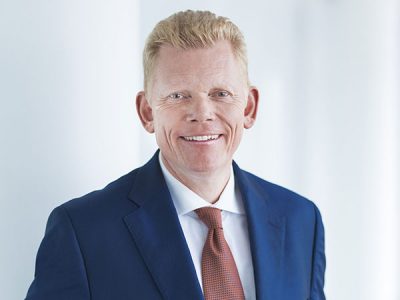Archived: Argentina is a beacon of hope for Latin America
Mauricio Macri’s ongoing success is an important signal for the upcoming elections in Latin America
It was no coincidence that the current World Trade Organization’s Ministerial Conference was held in Buenos Aires. The WTO, which has been hard pressed by the USA’s growing protectionism and stonewalling, wanted to send an unprecedented signal in South America; for the last two years, President Mauricio Macri has been implementing in Argentina almost precisely the policy that the WTO committed itself to at its foundation. Macri has ended his predecessor’s isolationism, state dirigisme, and my-country-first politics in his presidency. The chances of a sustainable recovery in Argentina are better than they have been in a considerable time.
Macri is being closely watched in the region. After all, decisive elections are due to be held in Latin America over the next twelve months. Two-thirds of Latin Americans are being called to the polls to elect new heads of state: in Chile just now, in Colombia in May next year, then in Mexico in July and in Brazil in October. It is therefore all the more important that a liberal-conservative president like Macri should show that market-economy reforms can not only bring growth and reduce poverty — they can even win elections.
In October, Macri’s government received a clear vote of confidence in congressional elections, which even surprised the government. Over fifty percent of Argentinians continue to support Macri. This is astonishing, because since taking office at the end of 2015, the son of one of the country’s richest entrepreneurs has swiftly streamlined the Argentinian economy towards a market-based course. The return to free markets and exchange rates, and the lifting of price freezes on public tariffs, did lead to a severe adjustment recession in 2016 and high inflation. The economy, however, is now gaining momentum. Private companies are beginning to invest, growth is up for the first time, Argentina’s GDP will increase by 2.8 percent this year. In 2018, the figure is set to rise to over 3 percent. The government has now introduced tax system and labour law reform packages into Congress. On the one hand, the tax burden on companies is to be gradually reduced — excessive corporate taxes are one of the main reasons for low investment in Argentina — on the other, labour law reform is intended to bring down the incidental wage costs that are the highest in Latin America.
The government wants to increase Argentina’s low productivity after decades of decline. The need for reform in both the state and the economic environment is enormous. Critics of the government point out that the government has hitherto “merely” corrected the errors of previous governments but no fundamental reforms have yet been achieved. Thus structural reforms are important in order to convince businesses, other countries, and, indeed, Argentinians themselves that the government is working unstintingly to modernise Argentina. A halt to reform would quickly entail economic stagnation. And the next crisis would be in sight. The victory in congressional elections has significantly reduced the risk of political stagnation.
The government intends to get the two reforms through Congress by March. The current economic recovery affords it a tailwind. Furthermore, the government is gaining ground by consistently involving such traditional opponents to reform plans as trade unions and opposition governors, which is increasing the acceptance of its projects. Generally, Argentinian presidents enforce laws by decree or a majority in Congress. This is admittedly effective in the short term, but creates legitimacy problems in the long run. Macri has repeatedly made it clear that he prefers the gradual implementation of reforms to the shock programmes typically favoured in Latin America.
The President’s ongoing popularity, just two years after his inauguration, is a source of relief for the economy. The scope for planning in business and politics has increased. There is a greater likelihood that Macri will be returned to office in the presidential elections in two years and that he will be able to govern for six. That would be a novelty in Argentinian history: never before has a president who wasn’t a Peronist been able to conclude his mandate.
For politicians throughout Latin America, it would be a clear sign that market-economy reforms can also guarantee political survival.






